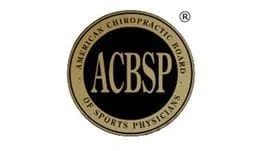Pinched nerves happen when bones, tendons, muscles, or inflammation exert excessive pressure on a nerve. If you have a compressed or pinched nerve, your body will likely send warning signals – which often include discomfort, pain, and other symptoms. It is essential not to ignore the warning signs your body is sending.
Fortunately, chiropractic care offers a variety of noninvasive and beneficial techniques that can effectively relieve the pain and symptoms resulting from a pinched nerve.
What is a Pinched Nerve?
Nerves, which extend from your brain & and your spinal cord, have an important function - sending messages (actually electrochemical signals) at incredible speeds (often exceeding 100 miles per hour) to various parts of your body.
The term "pinched nerve" describes a type of damage/injury to a nerve or set of nerves. A pinched nerve may happen in various body parts, including the spine, neck, arms, legs, wrists, hands, and feet. The specific causes of nerve compression will vary and depend on the exact location of your compressed or pinched nerve.
Common Causes of Pinched Nerves
There are various reasons why you may develop a pinched nerve. Nerves are most vulnerable in those parts of the body where they must traverse narrow spaces without much soft tissue to offer protection.
Nerve compression is most likely to happen when a nerve becomes compressed between various body structures (i.e., ligaments, tendons, bones, discs, etc.) or other factors. These include –
- Herniated/Bulging Discs
- Spinal Stenosis
- Muscle/soft tissue inflammation
- Poor posture or holding your body in one position for long stretches of time (waking up after sleeping in an awkward position).
- Injury or Trauma
- Repetitive Motion or Overuse
- Bone Spurs
- Certain Types of Arthritis
Common Pinched Nerve Symptoms
The potential damage from a pinched nerve varies from minor to severe, and the resulting symptoms may be temporary or develop into chronic, long-lasting problems. So, the earlier the diagnosis, the earlier your treatment for the pinched nerve can begin, and the quicker you will start to feel relief.
Symptoms from a pinched nerve may result from changes to your spinal discs or vertebrae and manifest in a number of ways - from pain, weakness, and tingling to numbness in a related area. Other symptoms might include -
- When inflamed at the root, the nerve may cause lower back or neck pain.
- Cervical Radiculopathy – Pain, numbness, and tingling radiating from the neck region through the shoulder and the arm. Additionally, nerve compression in the neck or arm may cause hand, wrist, elbow, and finger symptoms. Untreated nerve compressions in the neck or arm/hand may potentially lead to –
- Peripheral Neuropathy
- Carpal Tunnel Syndrome and more
- Lumbar Radiculopathy /Sciatica - Pain that may radiate down one/both legs.
Common Pinched Nerve Chiropractic Treatment Options
Chiropractors are professionally trained to apply various therapeutic interventions to identify and address a pinched nerve's symptoms/underlying causes. Chiropractors can relieve pain using-
Spinal Adjustments
Also known as spinal manipulations, this relieves pressure on the nerve by restoring proper alignment, reducing pain, and increasing mobility.
Soft Tissue Therapy
These therapies, which often include massage and other techniques, help relax tightened muscles and reduce inflammation in the afflicted area. Releasing muscle tension is an effective way to reduce pressure.
Lifestyle Modifications, Posture & Ergonomic Guidance
Chiropractors can help educate patients on how proper posture and the addition of ergonomic features/furniture can help alleviate nerve compression and pain. Therapeutic exercises that help to improve posture will offer pain relief and help reduce the risk of future nerve compression.
In addition, to help keep you moving pain-free, chiropractors may offer lifestyle adjustments that will help better manage your condition and its symptoms. Lifestyle changes may include exercising, stretching, and relaxation techniques that help relieve stress and muscle tension, which can often contribute to your pinched nerve.

